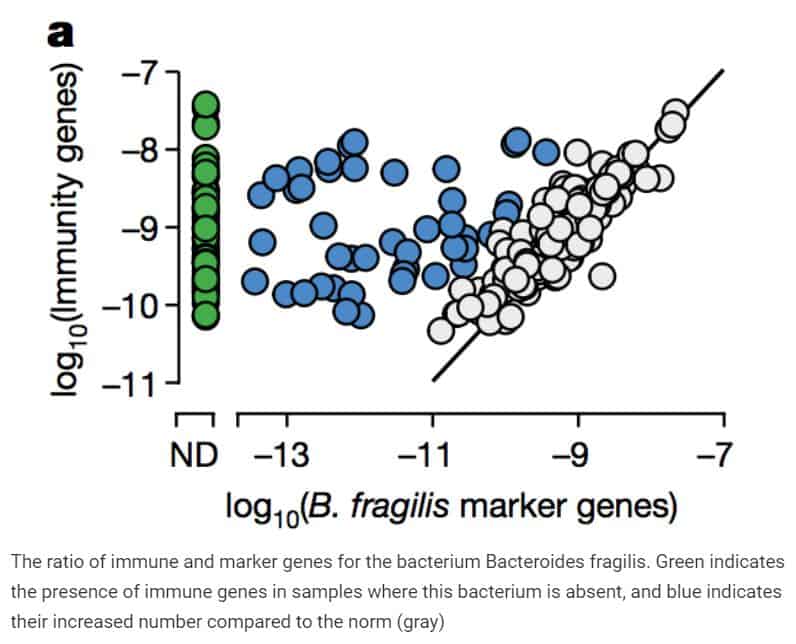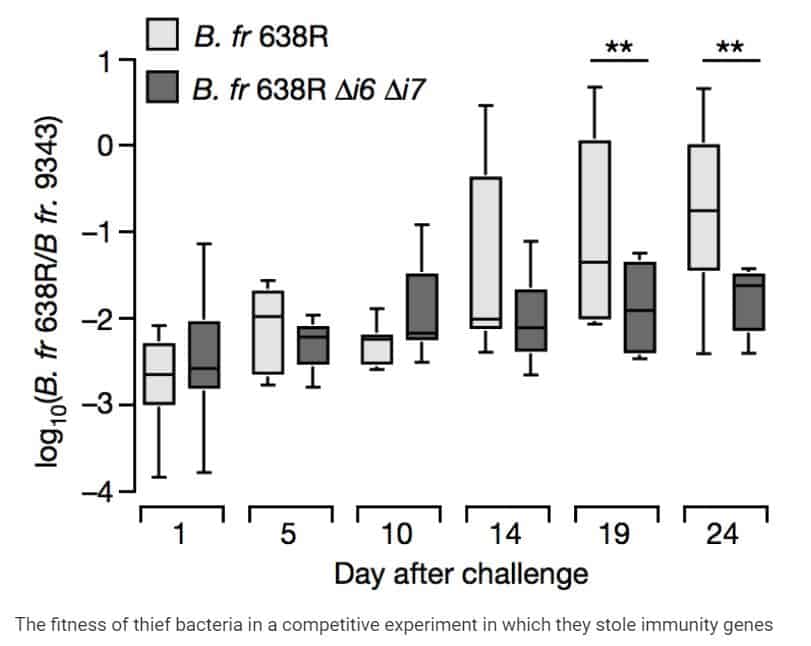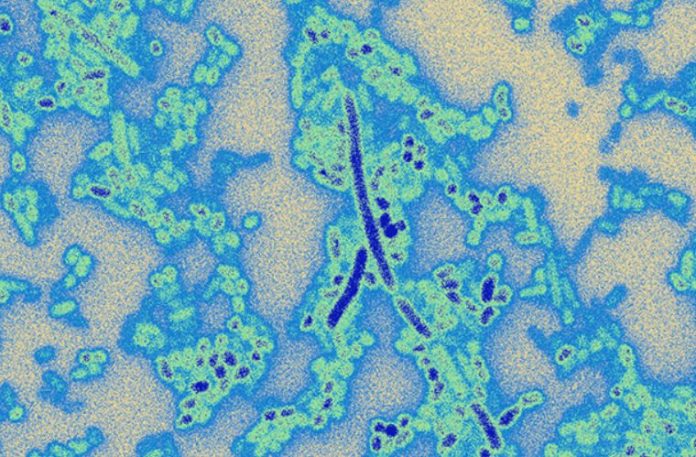In the fight against each other, intestinal bacteria use unique combinations of toxins, from which they themselves are protected, but some of them are able to “hack” such protection. The study shows that their competitors have to select appropriate combinations of neutralizing genes to survive.
The competition of bacteria in densely populated habitats such as the intestines of mammals is very high. To “crush” neighbours, bacteria use a system of toxins. The sixth type secretion system (T6SS) is one such. With its help, gram-negative “root” bacteria secrete toxins that are targeted against surrounding cells. At the same time, they themselves do not suffer, their immunity genes provide their safety. The protein products of these genes bind to toxins and neutralize them.
Benjamin Ross and his colleagues from the University of Washington managed to fix the “hack” of this safety system. Having checked 553 samples of metagenomes, they found that the immunity genes characteristic of the bacterium Bacteroides fragilis – a typical representative of the intestinal microbiota – are found in some samples much more often than other genes of this bacterium. Moreover, they were found in samples in which this bacterium did not exist.

But in these samples, there were other bacteria of the genus Bacteroides and the number of sequenced immunity genes correlated well with the number of their marker genes in the samples. The researchers suggested that they “stole” its genes from B. fragilis, because their presence provided a significant advantage for survival.
To prove this, scientists organized a competitive experiment in which B. fragilis and “crackers” fought for limited resources. Counting at the end of the experiment showed that stolen immunity genes can reduce the fitness of crackers. The reverse experiment, in which researchers “presented” a plasmid with immunity genes to E. coli, also confirmed their benefit in co-cultivation with B. fragilis. The results of this study may explain the poor survival rate of new bacteria in the already established intestinal community.

